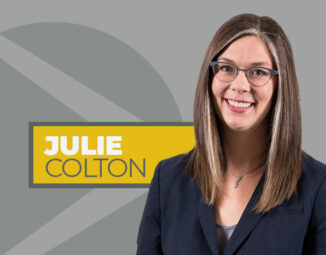Avoiding Estate Litigation: Estate Planning During and After Divorce
It is highly likely that if you’re going through a divorce, your estate plan is going to be the last thing on your mind. However, this is an imperative time to make sure you have the necessary documents in place to protect yourself and your interests. Doing so can ensure whomever you appoint to manage your estate or other affairs avoids unnecessary litigation in the future.
Most typical estate plans contain 3 categories of documents, and the timing on when to update these documents during the divorce process varies.
-
Financial Power of Attorney
A financial power of attorney is a document that allows you to pick an agent to handle your financial affairs and property in the event you are unable to do so. Typically, your agent can act in any way as though you yourself were acting – write checks, file your taxes, even sell your house.
-
Medical Power of Attorney
Similarly, a medical power of attorney is a document that allows you to pick an agent to make health care related decisions on your behalf in the event you are unable to do so. They can determine which doctors you see, accept or refuse a certain type of treatment, or even make end-of-life decisions.
If you had an estate plan prepared while your marriage was intact, it is likely that you may have named your spouse as your agent on one or both of these documents. These documents should be revised at the outset of the divorce action. Pursuant to Pennsylvania Law, if you designate your spouse as your agent and thereafter a divorce complaint is filed, the designation is revoked by law. Put more simply – your spouse can no longer act as your agent.
The power to make these decisions will pass to whomever you’ve named as a successor agent. If no successor agent was named, or the person you chose when drafting these documents in now unable to act, it could result in the entire power of attorney being inoperable. If this happens and you become incapacitated, your loved ones would have to petition the court and litigate for guardianship in order to manage your health and finances. For their and your own piece of mind, it is better to make sure your power of attorney is up to date with individuals you trust to make these decisions for you.
The most common document you likely think of when someone mentioned estate planning is a will or trust. These documents simply communicate your final wishes and desires pertaining to distribution of your assets or property.
Again, if you prepared an estate plan during your marriage, odds are you may have left all or at least a portion of your estate to your spouse. These documents should be revised once grounds are established in a divorce. Pursuant to Pennsylvania law, once grounds are established in your divorce case, any portion of your will that leaves assets to your spouse, or names your spouse as a fiduciary (trustee or executor) will become ineffective even if the divorce has not yet been finalized. Your assets will then pass to whomever you have named as contingent beneficiaries.
When reviewing your backup fiduciary or agent designations on wills or powers of attorney, make sure you are still comfortable with the individual you named. Unlike the designation of your spouse, these designations are not revoked as a matter of law. Do you still want your spouse’s mother or brother or friend in a position to make important decisions regarding your life and finances.
For further guidance on the divorce process, estate planning, or for assistance with your specific case, please set up a consultation with a member of our Family Law and/or Estate Planning teams. If a loved one has failed to update their estate plan and you are in a position where you may need to petition the court or challenge a planning document, please contact our Litigation Department and/or Estate Planning teams.
The information contained in this publication should not be construed as legal advice, is not a substitute for legal counsel, and should not be relied on as such. For legal advice or answers to specific questions, please contact one of our attorneys.






